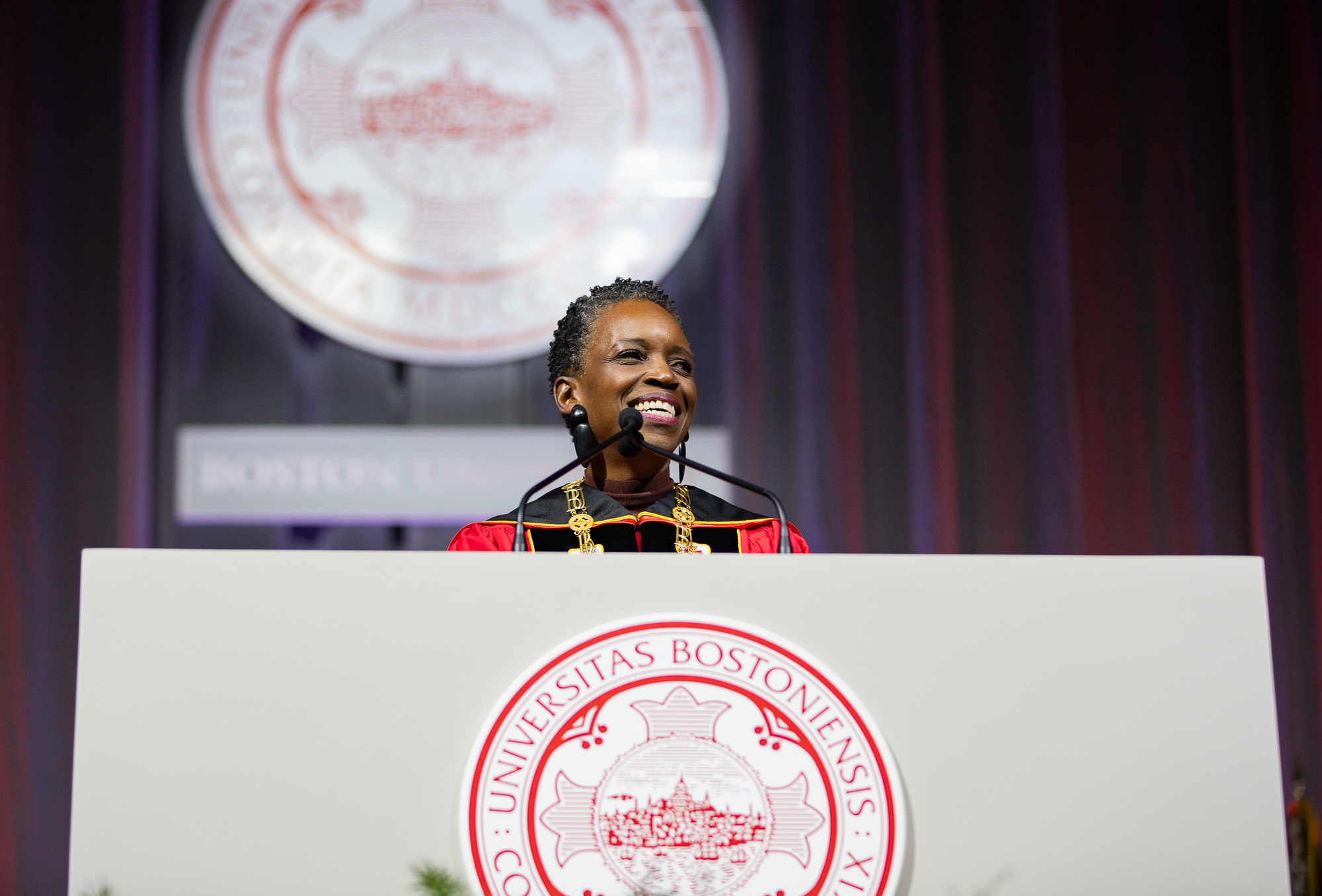Earlier this month, Boston University President Melissa Gilliam announced the Living Our Values Project, which aims to identify core principles across the University to foster “inclusivity, integrity and positive impact.”

The initiative will align the University’s foundational values with the needs of its diverse campus today, according to a letter from Gilliam to the University.
“The idea behind the Living Our Values Project is that we would come together as a campus community to develop those values that we believe collectively should be guiding the work that we do,” said Kimberly Howard, who is co-leading the Living Our Values Project with Associate Provost for Special Projects and Emerging Priorities Suzanne Kennedy.
Howard, a professor in Wheelock College of Education and Human Development, said these values will be “identified from the bottom up” by incorporating feedback from undergraduate and graduate students, staff, faculty and administrators. Once this is done, the University will then develop a framework establishing the values and their underlying principles by next year’s fall semester.
Last year, President Ad Interim Kenneth Freeman created two working groups to address religious and geopolitical identity bias and harassment on campus.
Professor Nancy Harrowitz, director of the Elie Wiesel Center for Jewish Studies, led one of these groups: the Working Group on Jewish Life and Addressing Antisemitism and anti-Jewish and anti-Israel Harassment. She wrote in an email to The Daily Free Press that one of the goals of the project is to “engage in civil discourse even when we have different points of view.”
“The past year after the massacres of Oct. 7 and ensuing war against Hamas is testimony for the need for such a project,” Harrowitz wrote. “It’s essential that we come together to learn from each other.”
Howard stressed this idea as well, and said an important component of the project is “promoting civil discourse on campus.”
“Living Our Values is not just about, ‘How do we continue to be in dialogue as a campus community around what’s happening between Israel and Hamas?’” Howard said. “That’s part of it, but it’s also how can we be in dialogue with one another, around whatever the emergent issues are?”
On Wednesday, the President’s office held a Town Hall as one of the initial efforts of the project. The meeting included Harrowitz and Professor Muhammed Zaman, the chairs of the two working groups Freeman established last year.
Zaman, who headed the Working Group on Muslim and Arab Life and Addressing Islamophobia and Anti-Arab Harassment, said the intent for these groups was ensuring safety for everyone on-campus, regardless of religious affiliations, ethnicity, nationality or faith.
The working groups facilitated meetings and discussions that developed into a “series of recommendations,” announced by Gilliam, Zaman said.
“What that offered me and others, was an opportunity to think about, ‘How do we go from here?’” Zaman said. “How do we have difficult conversations in an academic environment that believes in free speech, but also respect and concern for others?”
Another aspect of the project is the “steering committee,” which will evaluate the project’s progress in “engaging the community towards those goals,” according to Howard. The project’s team plans to finalize the committee over the next two weeks and hopes to involve students on it as well, she said.
“The hope with this Living Our Values initiative is that it will create that shared sense of what’s important to us, and also provide a language along with our efforts to provide tools and resources and trainings and strategies to support our ability to engage in civil discourse,” Howard said.
















































































































